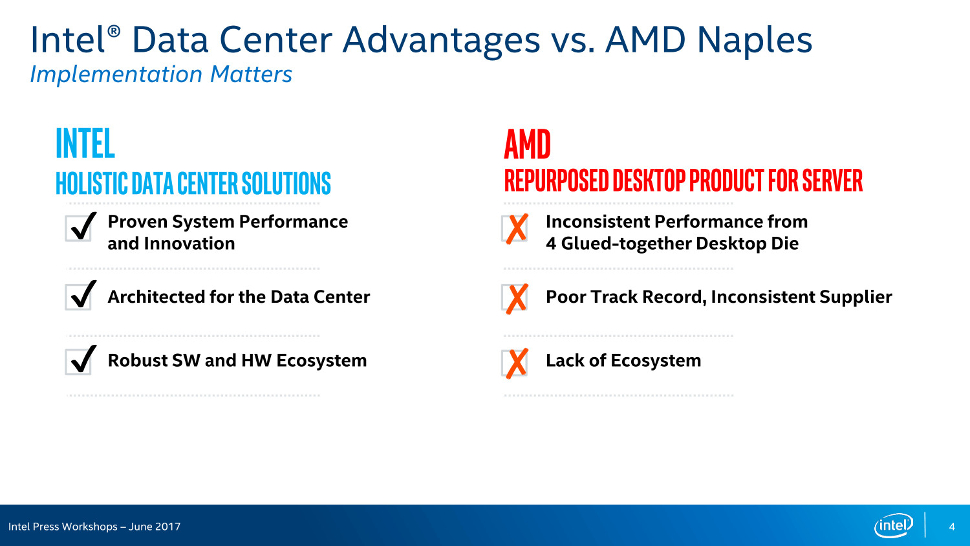
By Darren Allan
As you may be aware, AMD followed up its consumer-targeted Ryzen processors with Epyc CPUs (previously codenamed Naples) aimed at servers and data centres – and Intel has been busy slinging mud at the latter chips.
In a presentation slide, Intel claims that Epyc processors (which are based on the same Zen architecture as Ryzen, but go up to a mighty 32-cores) are ‘glued-together’ and a ‘repurposed desktop product for server’.
Basically, Intel is saying this is a cobbled together product, along with the glue comment, references the fact that AMD’s chips aren’t a single die, rather they are comprised of four dies put together. However, this isn’t a bad design, as Tech PowerUp, observes.
Indeed, the tech site argues that Zen cores were built from the ground-up for modularity and scalability, and to craftily maximise yields for AMD – with the Epyc chips also delivering impressive results on the power/performance front.
Intel’s slide, however, engages in other seemingly low blows, accusing AMD’s processors of having ‘inconsistent performance’ due to this ‘glued-together’ nature, and further accuses its rival of lacking in terms of its supporting ecosystem.
Broad brush
The problem is that making criticisms like these, with broad brush …read more
Source:: techradar.com – Computing Components

 Previous post
Previous post
 Next post
Next post